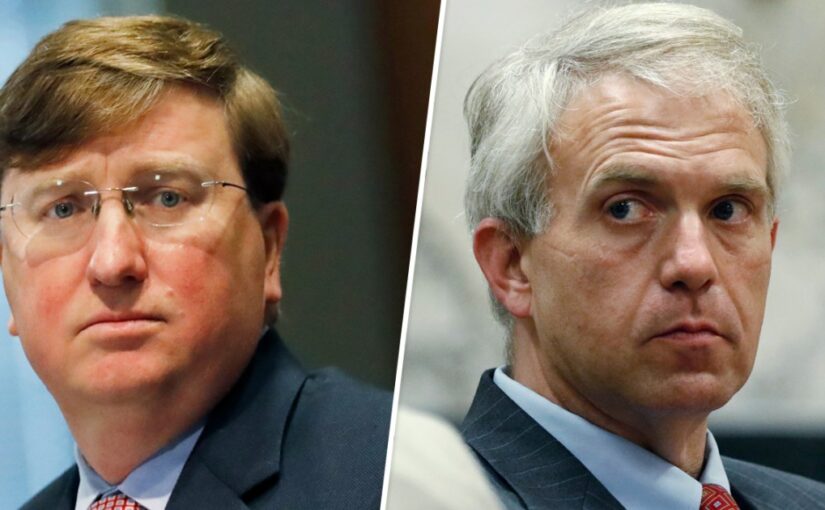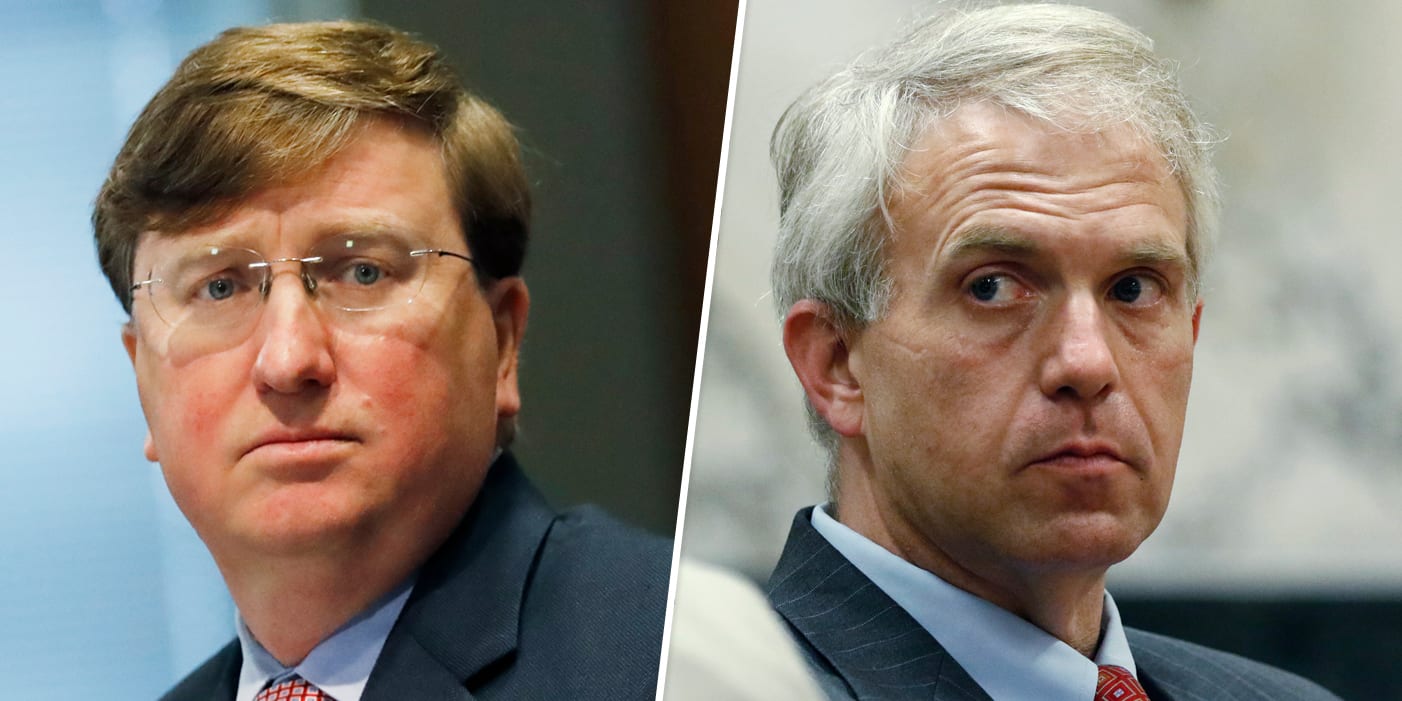The following is a transcript of an interview with Baltimore Mayor Brandon Scott that aired on March 31, 2024.
ED O’KEEFE: We turn now to the Mayor of Baltimore Brandon Scott. Mr. Mayor, thank you for spending part of Easter with us. We appreciate it. After this bridge collapse, this past week in your city, what is the most urgent need right now in Baltimore?
MAYOR BRANDON SCOTT: Well the most urgent need, because our focus will always be on those families. I’m talking focus on the total impact on humans, right. And that begins with the loss of life. That then goes to what’s going to happen for those families, and then the economic realities following this. And that’s where our focus is going to continue to be. We have the salvage operation underway as of yesterday, with one crane and one barge working to start to cut some of the bridge out, that work is happening through the unified command. But we are and always will be focused on the human impact of this tragedy.
ED O’KEEFE: Well, let’s talk a little bit about that. What more can you as a city be doing for those four families, and then more broadly, for the roughly 15,000 workers whose jobs are tied in one way or another, to the Port of Baltimore?
MAYOR BRANDON SCOTT: Well, listen, I said from day one, that my office would be there to support the families in every way possible. And it’s not just me, our partners and Governor Moore and his administration, my partners in Baltimore County Executive Olszewski and County Executive Pittman and their administration, my Mayor’s Office of Immigrant Affairs, has work with nonprofit groups that work with immigrants to set up case management for these individuals, we already set up a fund that now has over $300,000 into it for those families, and we will support them throughout this. That could mean that they need ongoing trauma care, that can mean in the future, they need help with different jobs and things like that. But we also have to focus on the impact of the workers and the businesses at the port. I first have to be thankful to President Biden for having the SBA allow us now to have these businesses apply for grants through SBA to be able to keep their business open, keep those folks employed. We’ve been working alongside- and thankful for Governor Moore for making that ask, that’s a strong sign of leadership for these workers in these businesses. We don’t want these small businesses to go away. We don’t want these jobs and my residents and everyone’s residents depend on, to go away. We’re actually opening up a center at 1501 South Clinton Street tomorrow morning, where the folks can come at afternoon at 1pm to come see the SBA. We’ll have our office on- on their on standby, it will be open every single day this week. Very gracious and grateful to the folks that care for us for allowing us to have it there. So that we can be able to help these individuals that are impacted in every way. But as I always say, in situations like this, we have to start with those most directly impacted. And that is, of course, those families.
ED O’KEEFE: You’re talking, when you say SBA, about the Small Business Administration that’s offering now loans of up to about $2 million to the affected companies. You know, ultimately, Congress is likely going to have to get involved in some of this to provide federal relief. What if any kind of direct outreach have you done to lawmakers in both parties to try to make the case for what Baltimore needs?
MAYOR BRANDON SCOTT: Well, listen, I have the best congressional delegation in the United States Congress. And Senator Cardin, Senator Van Hollen, Congressman Mfume, even Congressman Raskin, Congressman Trone, they have all been there on the ground. I don’t have to reach out to them because they’ve been there on site, talking with us, talking with the impacted individuals. And we know that they are going to do everything in their power to bring back resources for this tragedy that doesn’t just impact the city of Baltimore and the state of Maryland. This port is the number one port for cars and farm equipment. So this matters to folks in rural North Carolina, in Kansas, and Iowa, this matters to the global economy. And it does not, this should not be something that has anything or any conversation around party. We are talking about an American tragedy to an American city, American port city, that means so much to this country in the world, and no party conversation should be involved at all.
ED O’KEEFE: Secretary Buttigieg told us a little while ago that there’s still no sense of how quickly this cleanup will happen, or how quickly the bridge will get rebuilt. What happens to the economy of Baltimore in the meantime?
MAYOR BRANDON SCOTT: Well, right now, that’s the things that we’re looking at, right? We’re looking at how we’re going to offload some of the stuff that is in the port and maybe use our partners at Tradepoint Atlantic to help with some of that. We obviously have some stuff on trains that can go out,. This is why it’s so important for the SBA and what they’re doing. We be told- I’ll be meeting with labor leaders in the actual workers myself tomorrow to talk about what kind of other support that they need, while we all wrap our heads around and figure out how we can support them and keep as much commerce flowing as possible. This is going to be a long road. This is not going to be a sprint. This is a marathon and as I said yesterday, with you know anything about long distance running, the folks who get out quickly, never win. We are going to win, because we’re going to make every single step have the right pace, the focus and attention on every detail that we need to to make sure that we not only build back this bridge. That we focus on those humans impacted, and every single detail of that.
ED O’KEEFE: This was a tragic accident. But it seems these days when something like this happens in this country, there are always conspiracy theories and a lot of misinformation thrown around. And in the case of this accident, some downright nasty things said about you online this week. I’ve got to ask you one of the wilder things is some conservative critics blamed the bridge collapse on diversity, equity and inclusion policies in Maryland. Diversity, equity inclusion, better known as DEI to a lot of people. They called you, some critics, “the DEI mayor.” What did you make of that when you heard it?
MAYOR BRANDON SCOTT: Well, as I’ve said, already this week, we know. Listen, I am a young black man and young black mayor in this country. We know that there are a lot of racism, folks who don’t think I should be in this job. I know that, I’ve been Black my whole life. I know how racism- racism goes in this country. But my focus is always going to be on those people. I didn’t want to be out there that night asking- answering questions about DEI. I’m worried about the loss of life. We know how ridiculous that is. Those folks are afraid as I said this week, to use the N-word. This should not be even in conversation. We have to remain focused on the mission at hand and continue from my vantage point to prove those people wrong about people that look like me by doing my job in the best way that I can. And ignoring the noise of folks who simply want to be devices and are afraid that their way of life where people that don’t look like them and think like them can be in control can be in power and actually be better at the job.
ED O’KEEFE: Well, we thank you for spending some time on this Easter talking to us about the situation. As you said, it’s a marathon. We’ll likely be with you through some of the other miles of this and for now, happy Easter and thank you again.
MAYOR BRANDON SCOTT: Thank you. Happy Easter.

